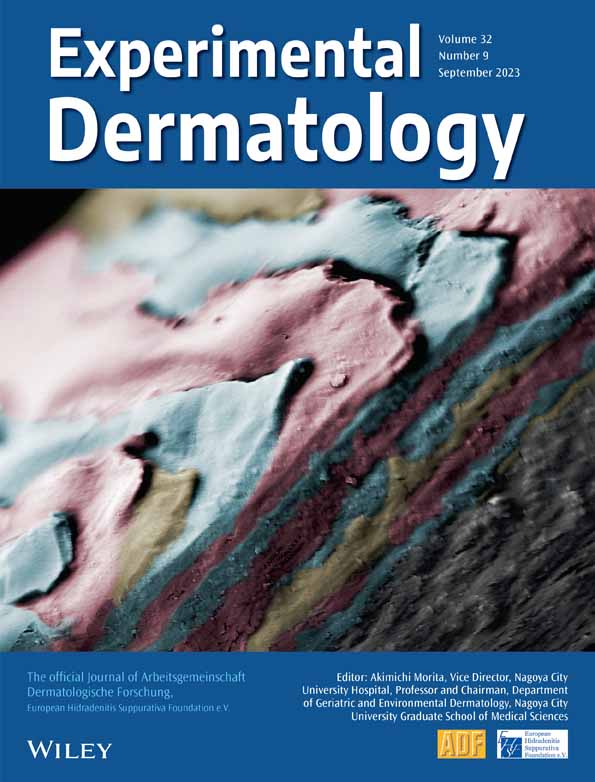Overexpression and potential roles of midkine via regulation of vascular endothelial growth factor A in psoriasis
Lin Li and Huidi Shucheng should be considered joint first author and contributed equally to this work.
Abstract
Midkine plays a critical role in angiogenesis by regulating the vascular endothelial growth factor (VEGF) signalling pathway, which is known to be associated with psoriasis pathogenesis. However, research on midkine-psoriasis relationship remains limited. The objective of this study was to detect midkine expression in psoriasis and investigate its potential role in the disease. Midkine expression was measured using immunohistochemistry and ELISA. Effects of midkine on HaCaT cell proliferation, VEGF-A production and signalling pathways were assessed using CCK8, RT-PCR and WB. Scratch and in vitro tube formation tests were used to evaluate the effects of HaCaT-cell-activated midkine on the migration and tube formation of human dermal microvascular endothelial cells. Murine psoriasiform models were injected with midkine recombinant protein and midkine monoclonal antibody to investigate skin lesions, tissue sections and dermal microvessel density. Levels of midkine significantly increased in both lesions and serum of patients with psoriasis. Serum expression of midkine decreased after treatment and a positive correlation was found between midkine and disease severity. Midkine promoted HaCaT cell proliferation and VEGF-A production. The Notch2/HES1/JAK2-STAT5A pathway expression increased after midkine treatment of HaCaT cells. The supernatant of HaCaT cells treated with midkine promoted HMEC-1 migration and angiogenesis in vitro. Recombinant midkine protein exacerbated psoriasiform lesions with increased expressions of VEGF-A and microvessel density, while midkine monoclonal antibody alleviated psoriasis lesions. Midkine may have a significant impact on psoriasis angiogenesis by regulating VEGF-A expression through the Notch2/HES1/JAK2-STAT5A pathway, highlighting a potential therapeutic target for psoriasis treatment.
CONFLICT OF INTEREST STATEMENT
All authors declare no conflicts of interest.
Open Research
DATA AVAILABILITY STATEMENT
The data that support the findings of this study are available from the corresponding author upon reasonable request.




